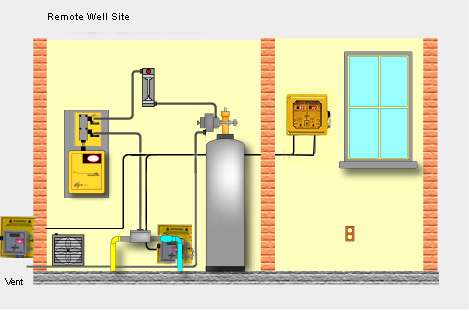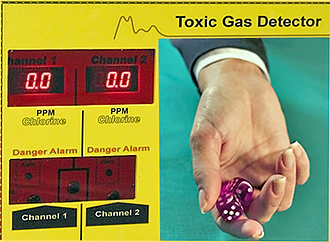I wanted to share a good idea that can help save money on chlorine gas while protecting your personnel.
Brian Gunn, of Coastal Chlorinators in Savannah, GA has a customer who prefers dual channel chlorine gas detectors in his remote well sites instead of the typical single sensor gas detector.
The customer places one sensor inside the well house to protect personnel, and the other sensor outside at the vent, so it will alarm if the chlorinator malfunctions. With the detector's alarm relay connected to a phone dialer, officials can be notified immediately instead of being surprised during an onsite visit after a month of wasting gas.

Of course, the environment is also protected from a prolonged chlorine gas leak.
If you have any other "cool tricks" please feel free to share them. When it comes to water and the environment, a good idea can benefit everyone.



